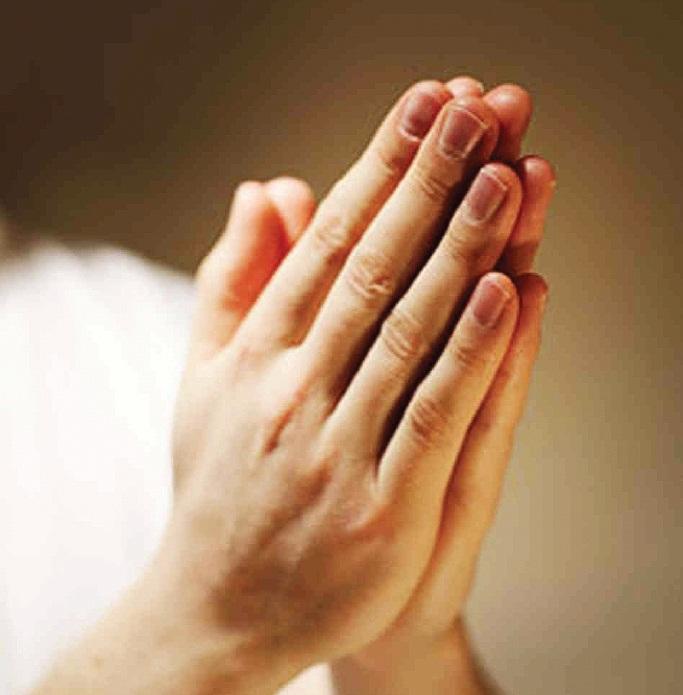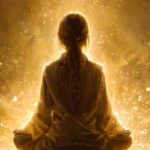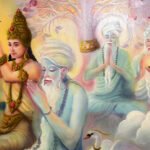Life goes through the process of aging and eventually ends in death. Those with minds steeped in ignorance think that death is a pleasant thing. Such a belief shows the extent of their ignorance. Some people would very much like to bid goodbye to their human life and die, thinking that death will give them the opportunity to meet their relatives in the next world. They will be able to break free from this wrong view when they learn the reality of life and death through the Dhamma. The Buddha taught that both aging and death fall under the first Noble Truth of Suffering, which must be realized. The Buddha knew very well that aging-and-death is a sorrowful experience for all ordinary beings.
Ordinary beings beg for life when faced with death. They become utterly helpless. The Buddha described aging and death as follows:
Monks, what is known as aging? The aging of the various beings in the various realms of beings, their growing old, loss of teeth, graying of hair, wrinkling of skin, diminishing of lifespan, maturation of the faculties. This, monks, is called aging.
Monks, what is known as death? The passing away of the various beings from the various realms of beings, their perishing, breakup, disappearance, mortality, death, completion of time, the breakup of the aggregates, abandonment of the body, severance of the life faculty: this is called death. Thus, this aging and this death are together called aging-and-death.
SN 12.2 – Analysis of Dependent Origination
(Vibhaṅga Sutta)
All of us are living a life that will end in death. Therefore, we should understand this life. If we constantly live our lives revolving around the concept of “mine,” “my self,” and “I am,” we are destined to continue existing in this endless cycle of births and continue to experience the suffering of death. The Buddha’s teachings are clear in the following verse:
Though a person conceives: “I am,” “mine,”
the same he abandons at death.
The wise, being well aware of this,
never do they get attached, saying, “I am,” and “mine.”
Sn 806 – Old Age (Jarā Sutta)
Death becomes a critical, woeful, and terrifying experience for those who live immoral lives. However much one tries to hide or run away, there is no escape from death. At times, we face situations when life becomes unbearable. At such times, we think death would be a solution to end suffering. But when we are faced with death, we wish to be able to live at least a moment longer. We live here for a very brief period of time. Our life exists hand-in-hand with death. We can understand this only when we wisely consider the instructions of the Buddha.
Is it a falsehood to speak of the sorrow and despair that people face due to aging-and-death? All living beings inherit the reality of aging-and-death when they are born. This is certainly a sad fate. All those who fail to understand the reality of aging-and-death become utterly helpless. Those who believe in a powerful creator god pray for deliverance from aging-and-death. Others believe that aging-and-death occurs due to the influence of planetary movements. As a result, they make offerings and sacrifices in the hope of nullifying these supposed astrological effects and warding off aging-and-death. Others believe aging-and-death are natural occurrences. They claim that nature should be allowed to run its course without any intervention. Still others believe karma to be the sole cause of aging-and-death and that there is no possibility of countering the effects of karma.
Aging-and-death cannot be prevented through material comforts and conveniences, such as vehicles, health food and drinks, vitamins, and the medicine of our so-called advanced scientific world. There is no artificial method of avoiding aging-and-death. We have no choice but to face this reality of life. The Buddha had a very clear understanding of this reality.
Short, indeed, is this life;
most die before a hundred years.
Barely does one live longer—
having aged and suffered, one dies.
Sn 804 – Old Age (Jarā Sutta)
Creationist religions avoid discussing the reality of life by teaching that only human beings are subject to aging-and-death and gods are immune to it. Only those who have faith in the god are supposed to be reborn in heaven and become immune to aging-and-death themselves. Those who hold these beliefs do not have the wisdom to understand that death inevitably exists wherever there is birth. The Buddha states that even a god with a lifespan of an eon is subject to aging from the moment of birth. Therefore, aging-and-death is a universal reality that befalls all living beings.
On one occasion, Sakka, lord of the devas, came to meet the Buddha and listened to the sublime Dhamma taught with great compassion. At the end of the discourse, the god Sakka became a stream-enterer. By that time, the god Sakka’s lifespan was almost over. He passed away in the presence of the Buddha and was immediately reborn again as Sakka by spontaneous rebirth. By becoming a stream-enterer he achieved the protection and comfort of not being reborn in a bad destination. God Sakka was delighted with his fortunate rebirth and uttered the following stanza to the Buddha:
While staying right here, remaining in the godly form, my expended lifespan was once again renewed. Great sage, may you know it thus!
DN 21 – The Discourse on Sakka’s Questions
(Sakkapañha Sutta)
We should wisely understand aging-and-death exactly as the Buddha explained it. One who does not have such an understanding get upset and alarmed at the mention of aging-and-death. He insults the sublime Dhamma saying: “Oh, Buddhism only talks about suffering. Why doesn’t it talk about happiness?” That person does not have the ability to investigate wisely and understand the truth about life.
However, the Buddha did not teach that suffering is something to weep about. It would be extremely unfair to say, “Life is suffering. There is nothing we can do about it. So, just endure the suffering.” Such a statement should be rejected.
Some political movements deceive the public by talking about suffering. They lament greatly in political forums that people are suffering immensely due to hunger. Politicians deceive the public with insincere words saying: “People are living in great misery due to the lack of food, housing, jobs, and good earnings. We will eliminate all these problems and create a wonderful world with abundant joy when we come to power.” In this manner, politicians exploit the public by talking about suffering. The vulnerable public is deceived by their crocodile tears.
Some people do not have the intelligence to realize that they have been exploited for a long time by unscrupulous politicians who use the topic of suffering deceptively. Such people say Buddhism only talks about suffering. By making such statements, they insult the Dhamma that teaches the truth about suffering, the cause of suffering, the cessation of suffering, and the clear path leading to the cessation of suffering.
Their behavior shows that they do not have even the slightest knowledge of what the Buddha taught. However, an intelligent person with a genuine desire to understand the truth will realize that only the Buddha’s Dhamma paves the way to realizing the truth. The Buddha teaches a universal truth, a timeless truth. This truth is a very delightful thing. An honest person finds the truth pleasing and falsehood repulsive. A dishonest person is averse to accepting the truth; he finds the truth bitter. The purest and most delightful truth is contained in the Four Noble Truths. It is an ever-relevant teaching that can be understood even today and one we should all strive to understand.
By a Venerable Thero of Mahmevnawa Buddhist Monastery











Recent Comments